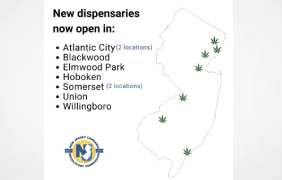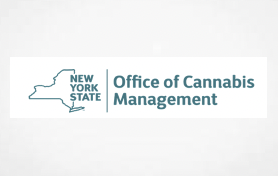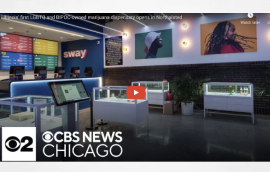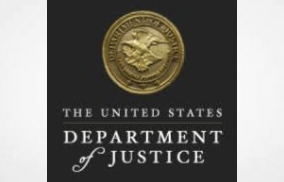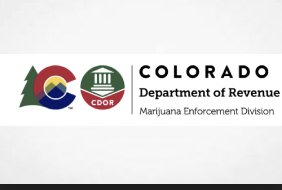Via MJ Biz
A California company specializing in hemp-derived delta-8 THC products has notched a fourth straight victory in copyright battles with competitors that it claimed were illegally using its protected brand.
According to Law360, AK Futures – which sells the popular “Cake”-branded delta-8 THC vaporizers – won its latest court fight when a federal judge again ruled that hemp-based products are protected under federal copyright laws because hemp was legalized in 2018.
In the case, U.S. District Judge James Selna ordered two of AK Futures’ rivals, Limitless Trading Co. and A1 Wholesale Supply Co., to pay $100,000 in damages and legal fees. Limitless does business as Cali Kulture.
The judge also issued permanent injunctions preventing the companies from using the trademarked “Cake” brand owned by AK Futures, Law360 reported.
ALSO SEE
21-56133
Via JD Supra
Ninth Circuit Decision Provides Clarity While Raising New Questions
[co-author: Cristina Ferretti]
The Ninth Circuit Court of Appeals recently held in AK Futures LLC v. Boyd St. Distro, LLC that delta-8 THC is legal for purposes of trademark protection. 35 F.4th 682, 686 (9th Cir. 2022). The rationale behind this ruling has roots in the 2018 Farm Bill (also known as the Agriculture Improvement Act of 2018)—or, more specifically, what was left out of the 2018 Farm Bill. Id. at 690.
By way of background, the 2018 Farm Bill legalizes hemp so long as the hemp or hemp product contains less than 0.3% Delta-9 THC. Strictly speaking, delta-8 THC is not accounted for in the 2018 Farm Bill. This loophole gave the Ninth Circuit room to confront the following question: whether delta-8 is considered synthetic—and illegal—or a legal, hemp-derived substance. In ruling that delta-8 THC is legal for purposes of trademark protection, the Ninth Circuit opined that products containing delta-8 THC are generally legal because they are hemp derived products and federal law defines hemp as “any part of” the cannabis plant, including “all derivatives, extracts, [and] cannabinoids,” containing less than 0.3% Delta-9 THC by weight. Id. Taking it a step further, the Ninth Circuit concluded that if “Congress inadvertently created a loophole legalizing vaping products containing delta-8 THC, then it is for Congress to fix its mistake.” Id. at 693.
It is important to keep in mind that the Ninth Circuit’s ruling only addresses the legality of delta-8 THC in the intellectual property context, which is evidenced in the nature of the lawsuit. Plaintiff AK Futures LLC, a manufacturer of e-cigarette and vaping products, accused defendant Boyd Street Distro LLC, a downtown LA storefront and smoke products wholesaler, of copyright and trademark infringement. Id. at 686-87. AK Futures alleged that Boyd Street sold counterfeit versions of its “CAKE” branded e-cigarette and vaping products containing delta-8 THC. Id. As to AK Futures’ “CAKE” branded products, AK Futures registered its “CAKE” logo with the U.S. Copyright Office and had “pending trademark applications for six marks, four of which [included] various permutations of the word Cake” and two included versions of the CAKE logo. Id. at 686 (emphasis added). Boyd Street responded that AK Futures did not have protectable trademarks for its CAKE products because delta-8 THC remains illegal under federal law and one cannot obtain federal trademark rights in any federally illegal substance. Id. at 689-90.
The District Court, faced with AK Futures’ request for a preliminary injunction, held that the 2018 Farm Bill legalized delta-8 THC products and granted injunctive relief on the basis that AK Futures showed a likelihood of success on both its copyright and trademark claims. Id. at 687. The Ninth Circuit affirmed the District Court’s ruling, citing the plain statutory text of the 2018 Farm Bill and also found that, given that AK Futures’ delta-8 THC products were not otherwise prohibited under federal law, the products were “eligible for trademark protection.” Id. at 685-86, 688, 691.
A key issue in front of the Ninth Circuit was the parties’ disagreement over whether AK Futures’ use of the CAKE marks on its delta-8 products was lawful. Id. at 689-90. AK Futures’ CAKE marks were unregistered at the time of the lawsuit and, unlike registered trademarks, were not entitled to the presumption that they were valid and protectable. Id. at 689. As a result, to prevail on its trademark claim, AK Futures was required to show that its CAKE marks were valid and protectable. Id. Only a lawful use of a trademark could give AK Futures’ trademark priority rights, which prevents “the absurd result of the government extending the benefits of trademark protection to a seller based upon actions the seller took in violation of that government’s own laws.” Id. (internal quotations and citation omitted). In response, Boyd Street argued that delta-8 THC was illegal because it was “synthetically derived” using a chemical process. Id. at 692. The Ninth Circuit found that AK Futures’ delta-8 products “fit comfortably” within the statutory definition of hemp, concluding that delta-8 may be “properly understood as a derivative, extract, or cannabinoid originating from the cannabis plant and containing ‘not more than 0.3 percent’” delta-9 THC. Id. at 692 (quoting 7 U.S.C. § 1639o(1)).
So where does this leave us? The Ninth Circuit’s decision both provides clarity and raises new questions. To date, the Ninth Circuit is the highest court to rule on the legality of delta-8 and it’s possible that other district or appellate courts may agree or may be more inclined to agree with the argument that delta-8 is “synthetically derived” and, therefore, outside of the definition of hemp.
What about state laws banning delta-8? The Ninth Circuit’s ruling does not change state laws that prohibit or otherwise regulate delta-8. The preemption language in the 2018 Farm Bill does not extend to state controlled substance laws. This is why state legislatures expressly amended their controlled substances laws to recognize hemp as an agricultural commodity and not within the definition of marijuana over the last few years.
What about the DEA? The Ninth Circuit’s decision also does not impact the recent dismissals of the Hemp Industries Association v. DEA lawsuits or answer the question of whether DEA asserts that delta-8 is synthetically derived, although it does lend credibility to the HIA’s arguments regarding the legality of delta-8 based on the plain language of the 2018 Farm Bill.
What about the FDA? This is one area where we did not need the Ninth Circuit’s decision to provide an answer. As we know from the FDA’s position regarding CBD, adding substances to foods, beverages, and dietary supplements is not as simple as de-scheduling it from the federal Controlled Substances Act. As FDA indicated in their “Five Things You Need to Know About Delta-8 THC” alert, FDA is concerned that delta-8 has not been approved for use in any consumable products or in any medicines. Relatedly, there have been reports of adverse events – illnesses and injuries – sufficient to prompt FDA and other health agencies to issue warnings regarding use of delta-8 products. In recent warning letters, FDA reiterated its position that hemp cannabinoids are considered unsafe, adulterated food additives within the meaning of the federal Food Drug and Cosmetic Act and that FDA is unaware of any basis to assert that such cannabinoids are Generally Recognized as Safe.
[View source.]
https://www.jdsupra.com/legalnews/ninth-circuit-decision-provides-clarity-7255862/

